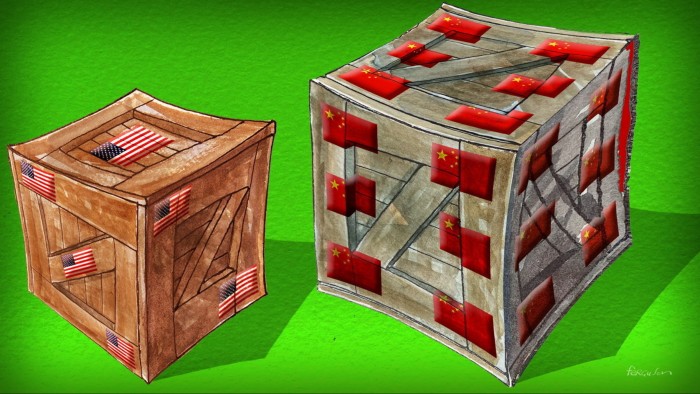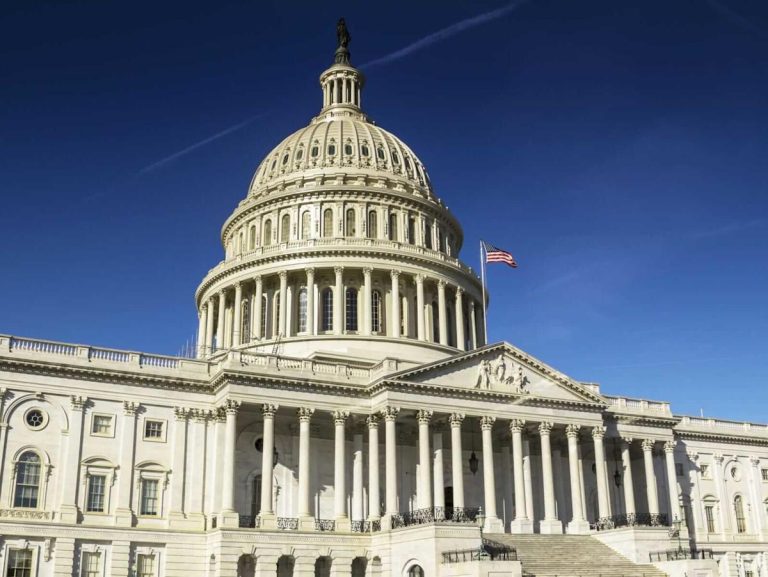Unlock the White House Watch newsletter for free
Your guide to what Trump’s second term means for Washington, business and the world
Donald Trump’s “liberation day” of supposedly “reciprocal tariffs” against the rest of the world — arguably, the most eccentric trade policy proposals ever made — has, after a hasty retreat under fire from the markets, turned into a trade war with China. This may (or, may not) have been what was intended from the start. So, can Trump win this war against China? Indeed, can the US, as it is now after Trump’s second coming, hope to succeed in its wider rivalry with China? The answers are “no”. This is not because China is invincible, far from it. It is because the US is throwing away all the assets it needs if it is to maintain its status in the world against a power as huge, able and determined as China.
“Trade wars are good and easy to win”, Trump posted in 2018. As a general proposition, this is false: trade wars hurt both sides. A deal might be reached that makes both sides better off than before. More likely, any deal will make one side better off than before and the other worse off. The latter sort of deal is, presumably, what Trump hopes will emerge: the US will win; China will lose.
At the moment, the US imposes a 145 per cent tariff on Chinese imports, while China imposes a 125 per cent tariff on the US. China has also restricted exports of “rare earths” to the US. These are very high, indeed in effect prohibitive, barriers to trade. This looks like a “Mexican stand-off”, one that neither can win, between the two superpowers.
One is given to understand that the US plan (if there is one) is to “persuade” trading partners to impose heavy barriers on imports from China in return for a favourable deal on trade (and maybe in other areas, such as security) with the US. Is this outcome plausible? No.
One reason is that China has powerful cards, too. Many significant powers already do more of their trade with China than with the US: these include Australia, Brazil, India, Indonesia, Japan and South Korea. Yes, the US is a more important export market than China for many significant countries, partly because of the trade deficits Trump complains about. But China is also a significant market for many. Moreover, China is a source of essential imports, many of which cannot be easily replaced. Imports are, after all, the purpose of trade.
Above all, the US has become unreliable. A “transactional” US is one always seeking a better deal. No sane country should bet its future on such a partner, especially against China. Trump’s treatment of Canada was the defining moment. The Canadians have responded by re-electing the Liberals. Will Trump learn from this? Can a leopard change his spots? This is who he is. He is also a man US voters have elected twice. Moreover, breaking with China would be risky: China will not forget and is unlikely to forgive.
Not least, China believes its people can bear economic pain better than Americans. Moreover, for it, the trade war is mainly a demand shock, while for the US it is mainly a supply shock. It is easier to replace lost demand than missing supply.
In sum, the US will not get the deals it apparently seeks and the victory over China it hopes for. My assumption is that, as this becomes evident to the White House, Trump will at least partially retreat from his trade wars, declaring victory, while moving on in some other direction.
Yet that does not change the reality that the US is indeed competing with China for global influence. Unfortunately, the US that many want to do well at this is not this US.
Moreover, Trump’s US will not do well. Its population is a quarter of that of China. Its economy is much the same size, because it is so much more productive. Its influence, cultural, intellectual and political, is still far greater than China’s because its ideals and ideas are more attractive. The US had been able to create potent alliances with like-minded countries that reinforce this influence. In sum, it has inherited and so been blessed with huge assets.
Now, consider what is happening under the Trump regime: attempts to transform the rule of law into an instrument of vengeance; the dismantling of the US government; contempt for the laws that are the foundation of legitimate government; attacks on scientific research and the independence of the great US universities; wars on reliable statistics; hostility towards immigrants (and not just illegal ones), even though they have been the foundations of US success in every generation; an outright repudiation of medical science and climate science; an outright rejection of the most basic ideas in the economics of trade; an equivalence or (far worse than that) preference for Vladimir Putin, the tyrant of Russia, over Volodymyr Zelenskyy, leader of democratic Ukraine; and open contempt for the array of alliances and institutions of co-operation upon which the US-built global order rests. All this is at the hands of a political movement that has embraced the January 2021 insurrection.
Yes, the global economic order did need improvement. The case for China to shift towards consumption-led growth is overwhelming. It is clear, too, that much reform is needed within the US. Yet what is happening now is not reform, but the ruin of the foundations of US success, at home and abroad. It will be hard to reverse the damage. It will be impossible for people to forget who and what caused it.
A US that is trying to replace the rule of law and the constitution with corrupt crony capitalism will not outperform China. A purely transactional US will not receive the wholehearted support of its allies. The world needs a US that competes and co-operates with China. This US, alas, will fail to do either well.










